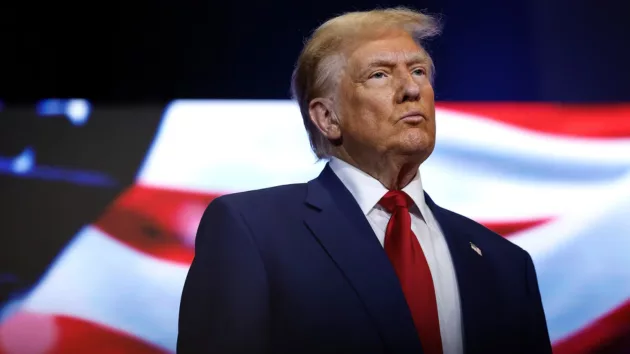
(NEW YORK) — The judge in Donald Trump’s New York criminal hush money case indicated Friday that he intends to sentence the president-elect to an “unconditional discharge” out of respect for the presidential immunity doctrine.
Judge Juan Merchan ordered Trump to appear, either in person or virtually, for sentencing on Jan. 10, which is 10 days before Trump’s presidential inauguration.
Merchan, in his ruling Friday, called an unconditional discharge the “most viable solution to ensure finality and allow Defendant to pursue his appellate options.”
Trump faces the possibility of up to four years in prison for his conviction, though most legal experts believe he is more likely to receive a lighter sentence.
Trump’s legal team is expected to try to stop the Jan. 10 sentencing, sources familiar with the matter tell ABC News. His lawyers intend to ask an intermediate New York appellate court to intervene and stop the sentencing hearing from going forward, the sources said.
Trump spokesperson Steven Cheung, in a statement, called Merchan’s ruling “a direct violation of the Supreme Court’s Immunity decision and other longstanding jurisprudence.”
“President Trump must be allowed to continue the Presidential Transition process and to execute the vital duties of the presidency, unobstructed by the remains of this or any remnants of the Witch Hunts. There should be no sentencing,” the statement said.
The Manhattan district attorney’s office, which secured the conviction against Trump, did not respond to a request for comment from ABC News.
Trump was found guilty this past May on 34 felony counts of falsifying business records related to a hush money payment made to adult film actress Stormy Daniels in order to boost his electoral prospects in the 2016 presidential election.
Merchan, in his ruling, described Trump’s conduct as a “premediated and continuous deception by the leader of the free world.”
“To vacate this verdict on the grounds that the charges are insufficiently serious given the position Defendant once held, and is about to assume again, would constitute a disproportionate result and cause immeasurable damage to the citizenry’s confidence in the Rule of Law,” the ruling said.
While Merchan said that he cannot determine Trump’s sentence without hearing from Trump himself and others in the case, he signaled his plan to sentence him to an unconditional discharge, under which Trump would avoid serious punishment but the record of his conviction would remain on his record.
Trump’s lawyers had long fought to push back the sentencing, successfully delaying it three times following the Supreme Court’s sweeping ruling on presidential immunity and a heated presidential campaign.
Merchan initially scheduled the sentencing for July 11 before pushing it to Sept. 18 in order to weigh if Trump’s conviction was impacted by the Supreme Court’s July ruling prohibiting the prosecution of a president for official acts undertaken while in office. Merchan subsequently ruled that Trump’s conviction related “entirely to unofficial conduct” and “poses no danger of intrusion on the authority and function of the Executive Branch.”
Merchan wrote that a unconditional discharge would respect the sanctity of the jury’s verdict — which he called “a bedrock principle in our nation’s jurisprudence” — and the principle of presidential immunity.
“While this Court as a matter of law must not make any determination on sentencing prior to giving the parties and Defendant an opportunity to be heard, it seems proper at this juncture to make known the Court’s inclination to not impose any sentence of incarceration, a sentence authorized by the conviction but one the People concede they no longer view as a practicable recommendation,” the ruling said.
“As such; in balancing the aforementioned considerations in conjunction with the underlying concerns of the Presidential immunity doctrine, a sentence of an unconditional discharge appears to be the most viable solution to ensure finality and allow Defendant to pursue his appellate options,” Merchan wrote.
Merchan’s ruling criticized Trump and his lawyers — several of whom are set to take top positions at the Department of Justice — for using rhetoric that “has no place in legal pleadings.”
“Dangerous rhetoric is not a welcome form of argument and will have no impact on how the Court renders this or any other Decision,” Merchan wrote.
The judge also criticized Trump for his “disdain” for the judiciary.
“Defendant’s disdain for the Third Branch of government, whether state or federal, in New York or elsewhere, is a matter of public record. Indeed, Defendant has gone to great lengths to broadcast on social media and other forums his lack of respect for judges, juries, grand juries and the justice system as a whole,” the ruling said.
The jury’s verdict, handed down last summer, made Trump the first U.S. president, current or former, to be criminally convicted.
Copyright © 2025, ABC Audio. All rights reserved.






